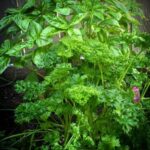Are petunias good for vegetable gardens? Many gardeners often wonder about the benefits of incorporating flowers into their vegetable plots. In this article, we will explore the advantages of planting petunias in vegetable gardens and how they can enhance the overall productivity and health of your crops. From companion planting to pest management, petunias can play a valuable role in supporting the growth of your vegetables.
When it comes to gardening, flowers are not just for aesthetic appeal; they also serve practical purposes. In vegetable gardens, flowers like petunias can attract beneficial insects, repel pests, and improve pollination. Understanding the role of flowers in supporting the health and yield of vegetable plants is crucial for creating a well-balanced and productive garden.
In the following sections, we will delve into the specific benefits of planting petunias in vegetable gardens, explore companion planting strategies with petunias, discuss the best varieties to choose from, learn how to care for them effectively, and provide tips for managing pests and diseases. By the end of this article, you will have a comprehensive understanding of why petunias can be an excellent addition to your vegetable garden.
Benefits of Petunias in Vegetable Gardens
When it comes to vegetable gardening, many people focus solely on growing fruits, vegetables, and herbs. However, incorporating flowers into your vegetable garden can offer numerous benefits. Petunias, in particular, are a great addition to any vegetable garden for several reasons:
1. Pest control: Certain varieties of petunias, such as the multiflora type, can help repel certain pests that are detrimental to vegetables. Planting petunias alongside your vegetables can act as a natural pest control method.
2. Pollinator attraction: Petunias produce nectar and pollen that attract pollinators like bees and butterflies. By attracting these helpful insects to your garden, you increase the chances of pollination for your vegetables, leading to a better harvest.
3. Aesthetics: In addition to their practical benefits, petunias also add beauty and color to the vegetable garden. They can serve as a border around the garden or as colorful pops interspersed among the vegetable plants.
Overall, adding petunias to your vegetable garden can enhance its appearance, support pollinators, and even protect your crops from pests when paired with the right companion plants.
Companion Planting With Petunias
Benefits of Companion Planting
Companion planting is the practice of growing different plants together to achieve specific benefits, such as pest control, improved growth, and flavor enhancement. When it comes to vegetable gardens, companion planting with flowers like petunias can be incredibly beneficial. Petunias not only add aesthetic appeal to the garden with their vibrant colors, but they also play a role in attracting pollinators like bees and butterflies, which in turn helps in the pollination of vegetables.
Complementary Characteristics
One of the reasons why petunias make great companion plants for vegetables is due to their characteristics. They have a trailing habit, making them suitable for planting as border plants or in hanging baskets around vegetable beds. Their ability to attract beneficial insects can help with pest management in the garden. Additionally, petunias are known for their ability to repel certain harmful insects such as aphids and tomato hornworms, which can be detrimental to vegetable crops.
Compatible Varieties
When selecting petunias for companion planting in vegetable gardens, it’s important to choose varieties that complement the specific needs of the vegetables being grown. For instance, trailing or spreading petunia varieties work well alongside sprawling vegetables like cucumbers or squash.
Similarly, compact or mounding petunia varieties can be paired with taller vegetables like tomatoes or peppers. By understanding the growth habits and space requirements of both the petunias and the vegetables, gardeners can create harmonious combinations that benefit each other’s growth.
Best Varieties of Petunias to Plant in Vegetable Gardens
When planting petunias in your vegetable garden, it is important to choose the right varieties that will complement the overall aesthetics and function of your garden. Some petunia varieties are better suited for companion planting with vegetables, while others may be more effective at deterring pests.
One popular variety of petunia that is well-suited for vegetable gardens is the ‘Wave’ petunia. These low-growing, spreading plants are known for their long bloom season and ability to fill in spaces quickly, making them a great option for ground cover around vegetable plants. They come in various colors including pink, purple, and white, adding a pop of color to your garden.
Another excellent variety to consider is the ‘Surfinia’ petunia. These cascading petunias make a beautiful addition to hanging baskets or containers within the vegetable garden. Their vibrant colors and trailing habit create visual interest and can help attract beneficial pollinators to the garden.
For those looking for a more compact option, the ‘Supertunia’ series offers a range of colorful options that are perfect for edging vegetable beds or adding color to small spaces. These compact petunias are known for their heat tolerance and continuous blooming throughout the growing season.
Overall, when choosing petunias for your vegetable garden, it’s essential to select varieties that not only enhance the beauty of the space but also contribute positively to the health and productivity of your vegetable plants.
| Petunia Variety | Characteristics |
|---|---|
| Wave Petunia | Low-growing, spreading with long bloom season |
| Surfinia Petunia | Cascading, vibrant colors and trailing habit |
| Supertunia | Compact, heat-tolerant with continuous blooming |
How to Care for Petunias in a Vegetable Garden
Petunias are not just pretty additions to a vegetable garden, they also serve several practical purposes that can benefit the overall health and productivity of the garden. One of the main benefits of planting petunias in a vegetable garden is their ability to attract beneficial insects such as hoverflies and parasitic wasps.
These insects act as natural pest control, preying on common garden pests like aphids and caterpillars. In addition, petunias can also help improve the aesthetic appeal of the garden and create a more inviting environment for pollinators.
In addition to their pest-attracting qualities, petunias make excellent companion plants for many vegetables. Their low-growing nature makes them a great option for filling in gaps between taller vegetable plants, effectively suppressing weeds and conserving soil moisture. They also add diversity to the garden ecosystem, which can help deter pests that are attracted to large monocultures of vegetables.
Best Varieties of Petunias to Plant in Vegetable Gardens
When selecting petunias for a vegetable garden, it’s important to choose varieties that are well-suited for the specific growing conditions and climate of your region. Some popular choices include “Wave” petunias, which are known for their spreading habit and drought tolerance, making them ideal ground covers; “Supertunia” varieties, which are prized for their long blooming season and resistance to disease; and “Multiflora” types, which produce an abundance of smaller flowers that attract even more pollinators to the garden.
By choosing the right variety, you can ensure that your petunias thrive alongside your vegetables while adding beauty and functionality to your garden space.
| Aspect | Information |
|---|---|
| Main Benefits | Petunias attract beneficial insects such as hoverflies and parasitic wasps |
| Companion Planting | Petunias suppress weeds, conserve soil moisture, and add diversity to the garden ecosystem |
| Best Varieties | “Wave”, “Supertunia”, and “Multiflora” types are ideal choices with specific advantages |
Tips for Managing Pests and Diseases When Growing Petunias in a Vegetable Garden
When growing petunias in a vegetable garden, it’s important to be mindful of managing pests and diseases to ensure the health and vitality of your plants. Here are some tips for effectively managing these potential issues:
- Regularly inspect your petunias for signs of pests such as aphids, slugs, or caterpillars. If you notice any pests, consider using natural pest control methods such as introducing beneficial insects like ladybugs or lacewings.
- Implement good gardening practices such as proper spacing between plants and adequate airflow to reduce the risk of disease development. Additionally, avoid overhead watering which can lead to moisture-related diseases.
- Consider using organic fungicides or insecticidal soaps to treat common diseases and pests while minimizing harm to the environment and beneficial insects.
By following these tips, you can effectively manage pests and diseases when growing petunias in your vegetable garden, promoting a healthy and thriving garden ecosystem. Remember that proactive monitoring and early intervention are key to preventing major pest and disease outbreaks that can negatively impact your plants. With proper care and attention, your petunias can contribute to the overall beauty and health of your vegetable garden.
Common Mistakes to Avoid When Planting Petunias in a Vegetable Garden
When adding petunias to a vegetable garden, it’s important to be aware of common mistakes that can hinder their growth and the overall health of the garden. One common mistake to avoid is planting petunias in soil that is not well-draining.
Petunias prefer moist but well-drained soil, so it’s crucial to avoid waterlogged areas where they may become susceptible to root rot. Therefore, before planting petunias, be sure to amend the soil with organic matter and ensure proper drainage.
Another mistake to avoid is overcrowding the petunias in the vegetable garden. While it may be tempting to plant as many as possible to create a colorful display, overcrowding can lead to poor air circulation and increased susceptibility to diseases such as powdery mildew. Be sure to give each plant enough space to thrive and consider installing support structures if needed for trailing varieties.
Additionally, some gardeners make the mistake of neglecting petunias’ need for regular fertilization. When planted in a vegetable garden, petunias can benefit from a balanced fertilizer applied every 2-4 weeks during the growing season. Failing to provide adequate nutrition can result in stunted growth and reduced flowering. Therefore, be sure to incorporate fertilization into your regular maintenance routine for optimal petunia growth and performance in the vegetable garden.
Conclusion
In conclusion, incorporating petunias into vegetable gardens can bring a multitude of benefits. Not only do they add a burst of color and beauty to the garden, but they also attract pollinators and beneficial insects that can aid in the growth and productivity of vegetable plants. Their ability to repel certain pests and enhance the overall health of the garden makes them a valuable addition to any vegetable garden.
Furthermore, companion planting with petunias can help deter harmful insects and improve the overall ecosystem of the garden. By carefully selecting the best varieties of petunias and providing proper care, gardeners can ensure their success in a vegetable garden. Additionally, by being aware of common mistakes to avoid when planting petunias in a vegetable garden, such as overwatering or improper spacing, gardeners can maximize the benefits of adding these flowers to their gardening space.
Ultimately, while petunias may not be traditionally thought of as advantageous for vegetable gardens, their many positive attributes make them a worthy addition. With proper planning and management, petunias can contribute to a more vibrant, healthy, and productive vegetable garden. So why not consider adding some colorful petunias to your vegetable patch this growing season?
Frequently Asked Questions
Should I Plant Petunias in My Vegetable Garden?
Planting petunias in a vegetable garden can actually be beneficial for both the flowers and the vegetables. Petunias can attract pollinators like bees and butterflies, which can help with vegetable pollination.
Additionally, their strong fragrance can deter pests that might otherwise attack the vegetables. Just be sure to position them strategically so they don’t block sunlight or space from the vegetables.
Can I Plant Petunias Next to Tomatoes?
Yes, you can plant petunias next to tomatoes. In fact, this combination is often recommended as petunias can help repel certain pests that commonly affect tomato plants. Just be mindful of spacing to ensure that both plants have enough room to grow without competing for resources.
What Flowers Are Best for Vegetable Gardens?
When choosing flowers for a vegetable garden, it’s best to select ones that serve a purpose beyond just looking pretty. Some good options include marigolds, nasturtiums, and calendula, as these flowers can help repel pests, attract beneficial insects, and even improve soil health.
It’s also important to consider the growing conditions of your particular vegetable garden when selecting companion flowers.

If you’re looking to get into vegetable gardening, or are just looking for some tips on how to make your current garden better, then you’ve come to the right place! My name is Ethel and I have been gardening for years. In this blog, I’m going to share with you some of my best tips on how to create a successful vegetable garden.





